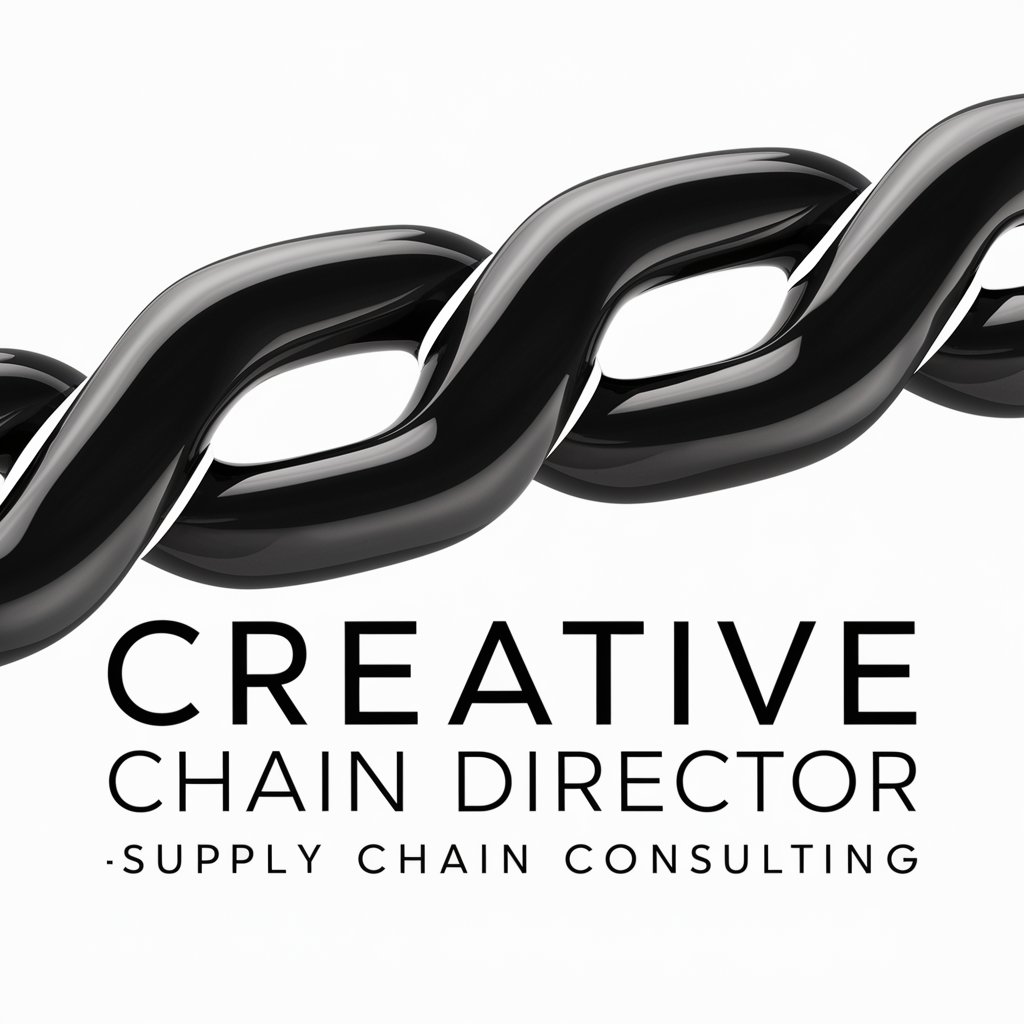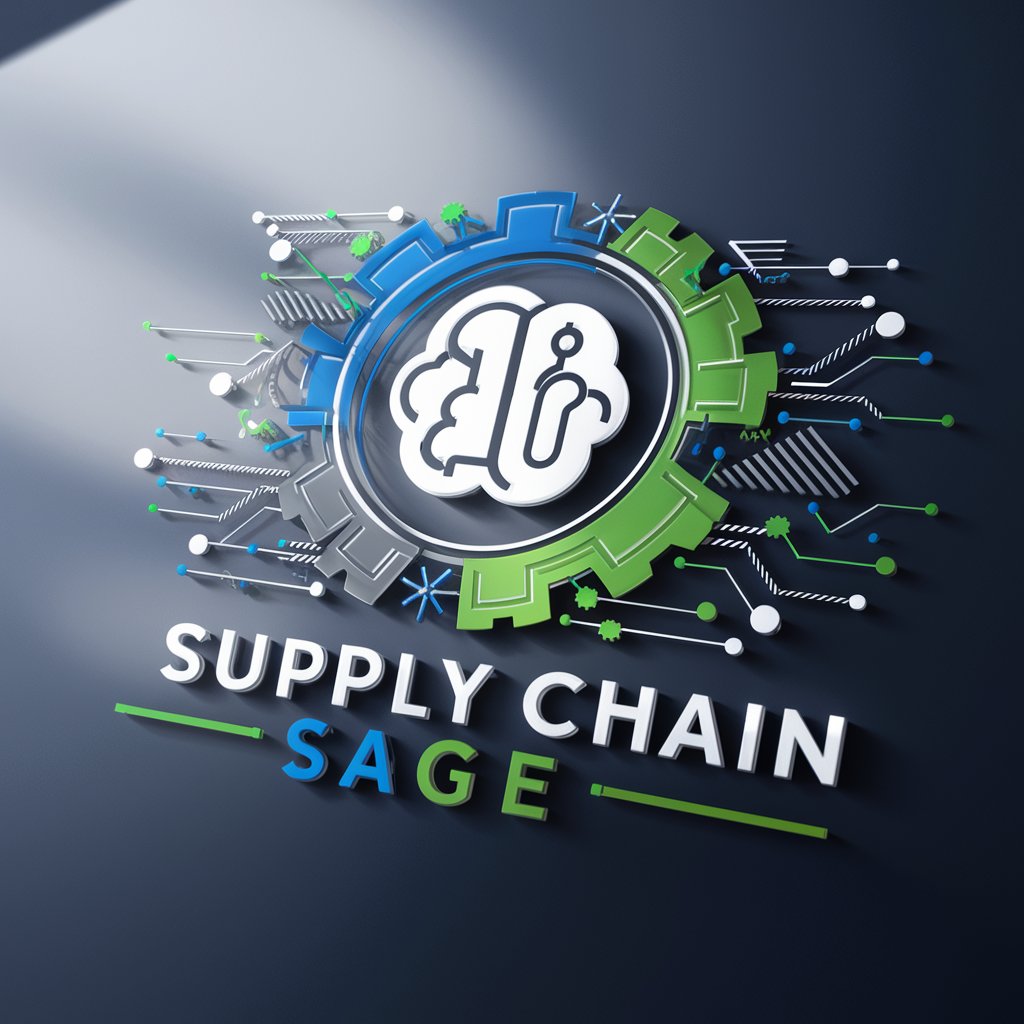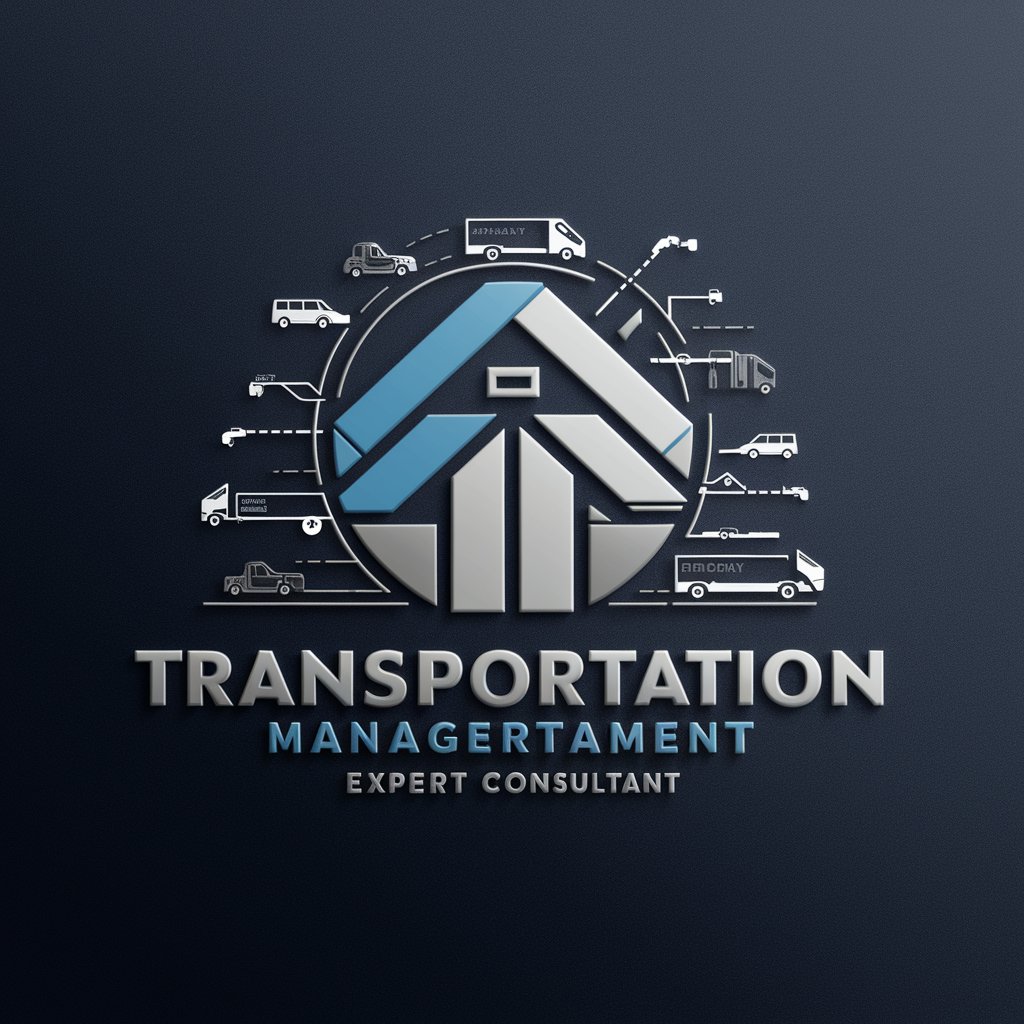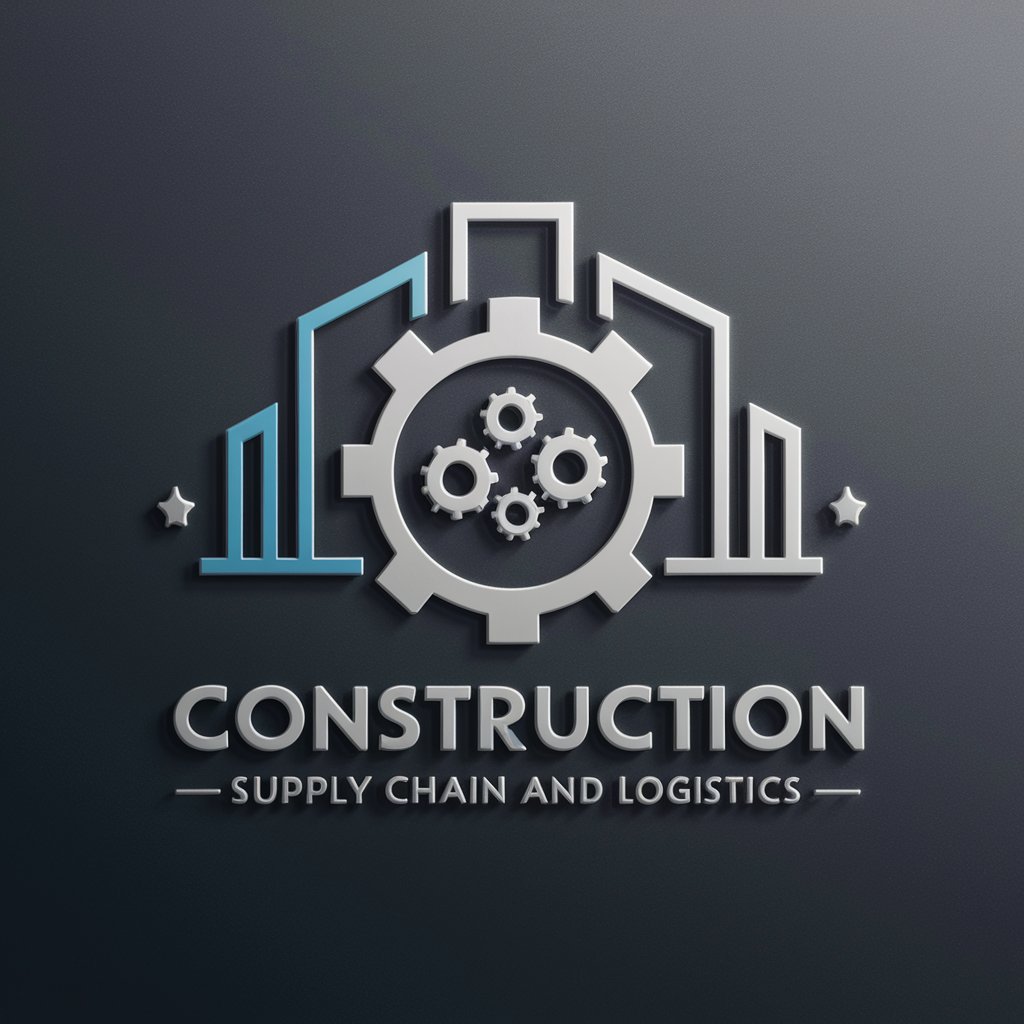
Supply Chain manager - Supply Chain Insights and Optimization
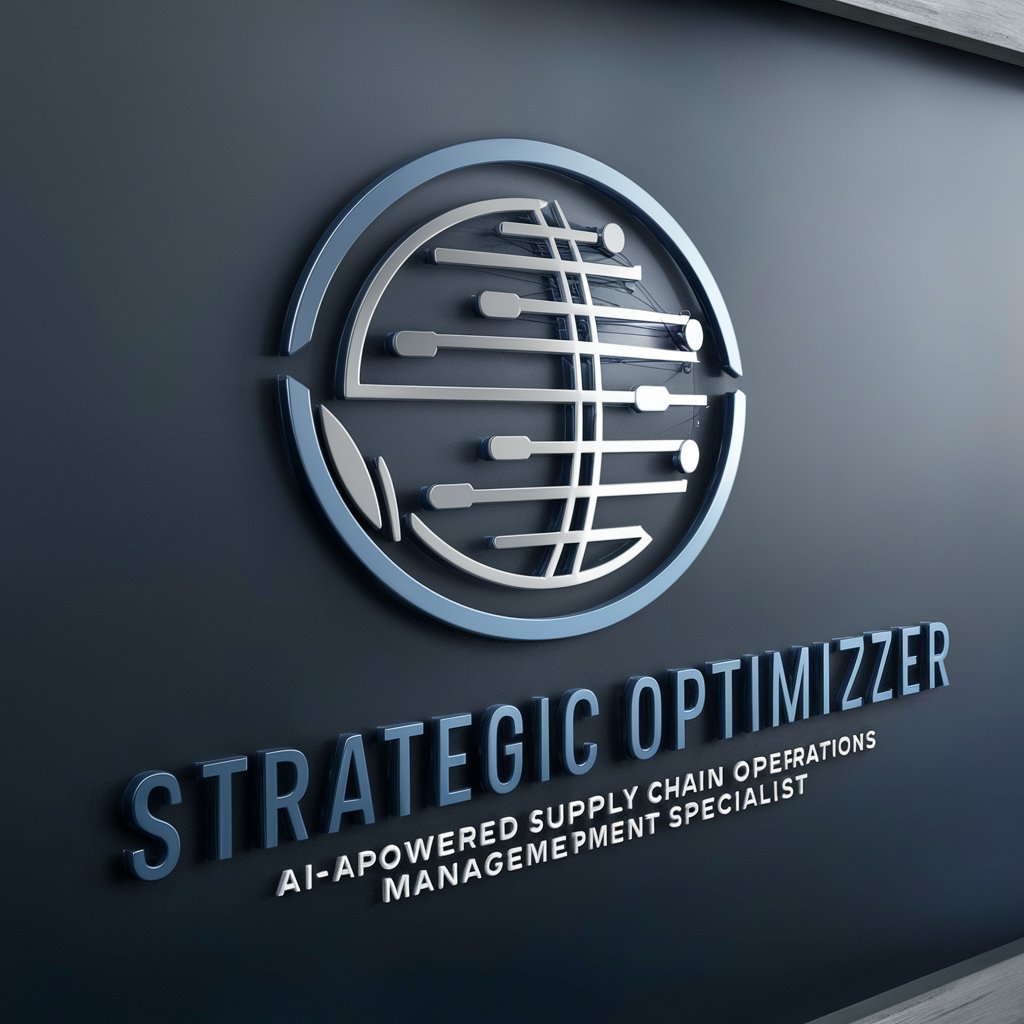
Welcome to Strategic Optimizer, your expert in supply chain and operations management.
AI-powered Supply Chain Efficiency
Explain the importance of integrating technology in supply chain management.
Describe the benefits and challenges of offshoring in global supply chains.
How can Total Quality Management (TQM) improve supply chain efficiency?
Discuss the role of sustainability in modern supply chain strategies.
Get Embed Code
Overview of Strategic Optimizer: The Supply Chain Manager GPT
Strategic Optimizer, designed as a Supply Chain Manager GPT, is a sophisticated AI tool tailored to address the complexities of supply chain and operations management. Its creation stems from the necessity to navigate the intricate and globalized nature of modern supply chains, offering users insights into efficient practices, strategic planning, and decision-making processes. The Strategic Optimizer is built to facilitate the optimization of supply chains by integrating technology, sustainability, logistics, and risk management. By analyzing trends, identifying bottlenecks, and recommending improvements, it assists in achieving a streamlined supply chain operation. For example, in scenario planning, the GPT can simulate various supply chain disruptions, such as a supplier strike or a transportation halt, and suggest actionable strategies to mitigate risks and maintain operational continuity. Powered by ChatGPT-4o。

Key Functions and Applications of Strategic Optimizer
Risk Mitigation and Management
Example
The GPT assesses potential risks in the supply chain, such as geopolitical tensions affecting raw material availability, and suggests diversification strategies.
Scenario
In a scenario where a key supplier's country faces economic sanctions, the GPT could recommend alternative sourcing strategies and evaluate the impact on cost and lead time.
Logistics and Distribution Optimization
Example
Utilizing advanced algorithms, it optimizes routing, warehouse operations, and distribution networks to enhance efficiency and reduce costs.
Scenario
For a retail chain experiencing delayed deliveries and high transportation costs, the GPT proposes an optimized distribution network that reduces lead times and leverages cost-effective carriers.
Sustainable Supply Chain Practices
Example
The GPT advises on integrating sustainable practices, such as circular economy principles, into supply chain operations to meet environmental and social governance (ESG) goals.
Scenario
A manufacturing company looking to reduce its carbon footprint is guided by the GPT in implementing a closed-loop recycling program for its products, alongside suppliers' sustainability assessments.
Technology Integration for Supply Chain Efficiency
Example
It suggests the adoption of technologies like IoT, blockchain, and AI to enhance visibility, traceability, and efficiency across the supply chain.
Scenario
When a pharmaceutical company needs to ensure the integrity of its cold chain, the GPT recommends IoT-enabled sensors for real-time temperature monitoring and blockchain for secure, tamper-proof record-keeping.
Target Users of Strategic Optimizer
Supply Chain Professionals
Experts in supply chain management, logistics, and procurement who seek to leverage AI for data-driven decision-making, risk assessment, and operational optimization would find this tool invaluable for staying ahead in a dynamic global market.
Business Executives
Senior leaders and decision-makers in businesses who aim to enhance their company's competitiveness through efficient, sustainable, and resilient supply chain strategies. They can use the tool for strategic planning and to evaluate the potential impact of business decisions.
Sustainability Officers
Individuals responsible for implementing and managing sustainable practices within organizations. They would benefit from the GPT's insights on incorporating ESG goals into the supply chain, helping to meet regulatory requirements and consumer expectations for sustainability.
Technology Innovators
Tech professionals exploring the integration of cutting-edge technologies within supply chain operations. They can utilize the GPT to understand how IoT, AI, and blockchain can drive transparency, efficiency, and innovation in supply chain management.

How to Use Supply Chain Manager
1
Start by visiting yeschat.ai to access a free trial without the need for login credentials or a ChatGPT Plus subscription.
2
Familiarize yourself with the tool's interface and features to understand how it can assist in supply chain and operations management.
3
Identify the specific supply chain challenge or query you have, whether it's related to logistics, outsourcing, risk management, or process optimization.
4
Use the query box to input your questions or describe the scenario for which you need advice, ensuring to include all relevant details for a comprehensive answer.
5
Review the generated advice, insights, and suggestions. Apply the recommendations to your supply chain strategy and operations for improved efficiency and performance.
Try other advanced and practical GPTs
Supply Chain Analyst
Optimize your supply chain with AI
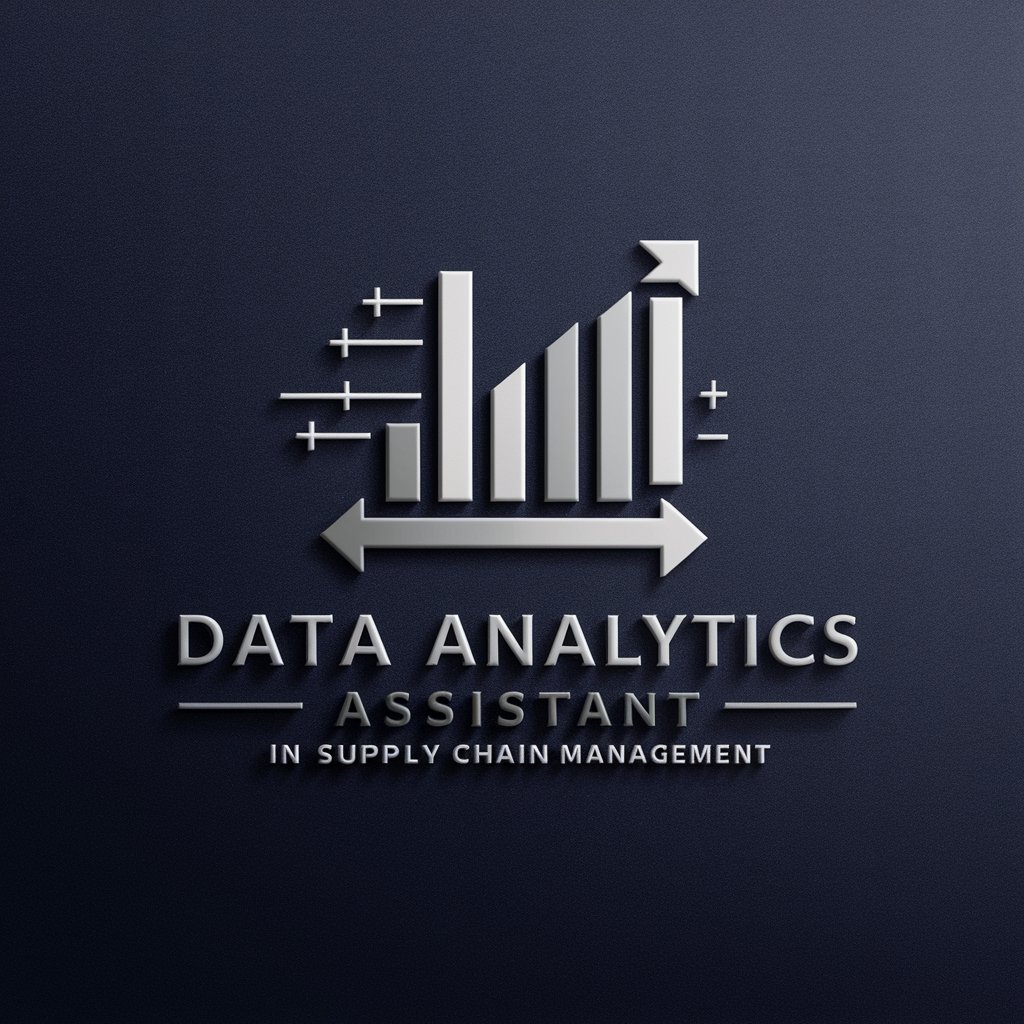
The Supply Chain Analytics Scholar
AI-driven supply chain analytics insights
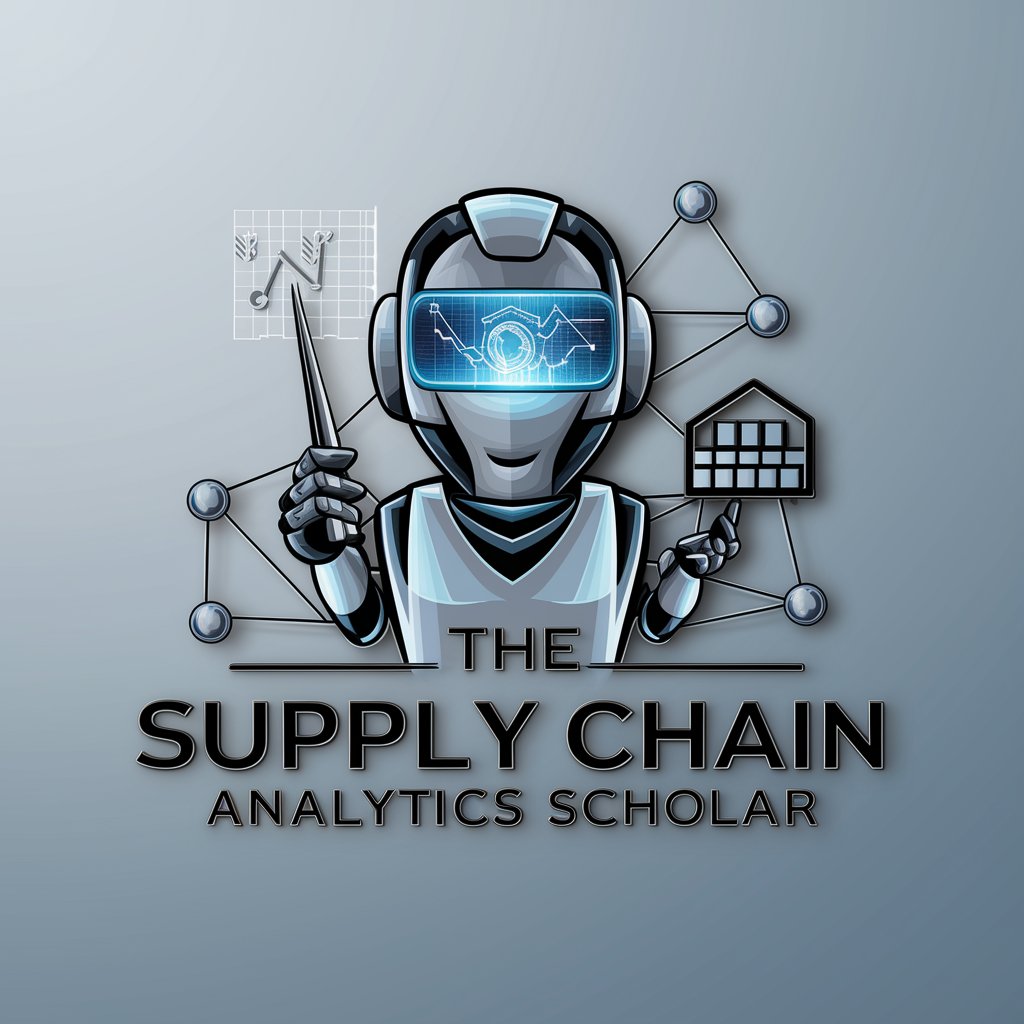
AI in Supply Chain Management GPT
Empowering Supply Chains with AI
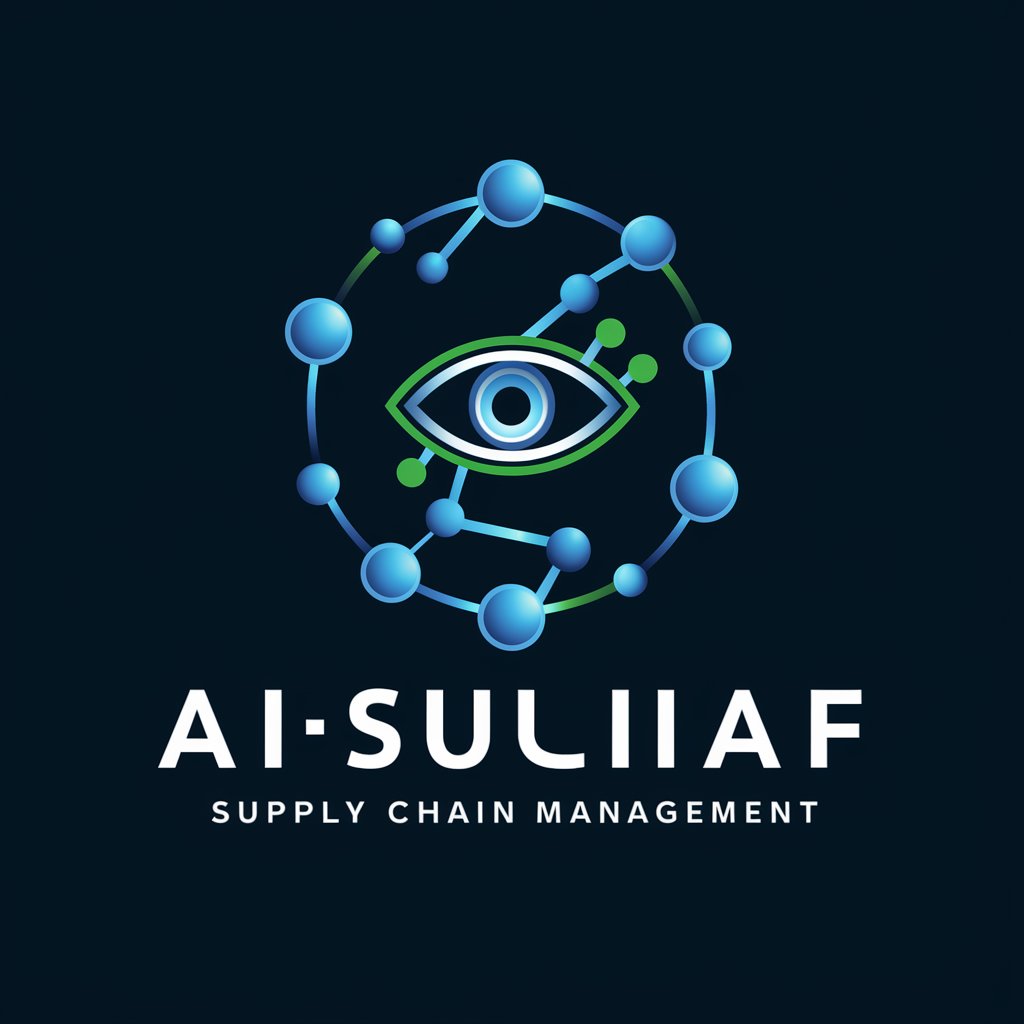
Blood Supply to Ligaments
Empowering Ligament Health through AI

Supply Chain Strategist
Optimize Your Supply Chain with AI
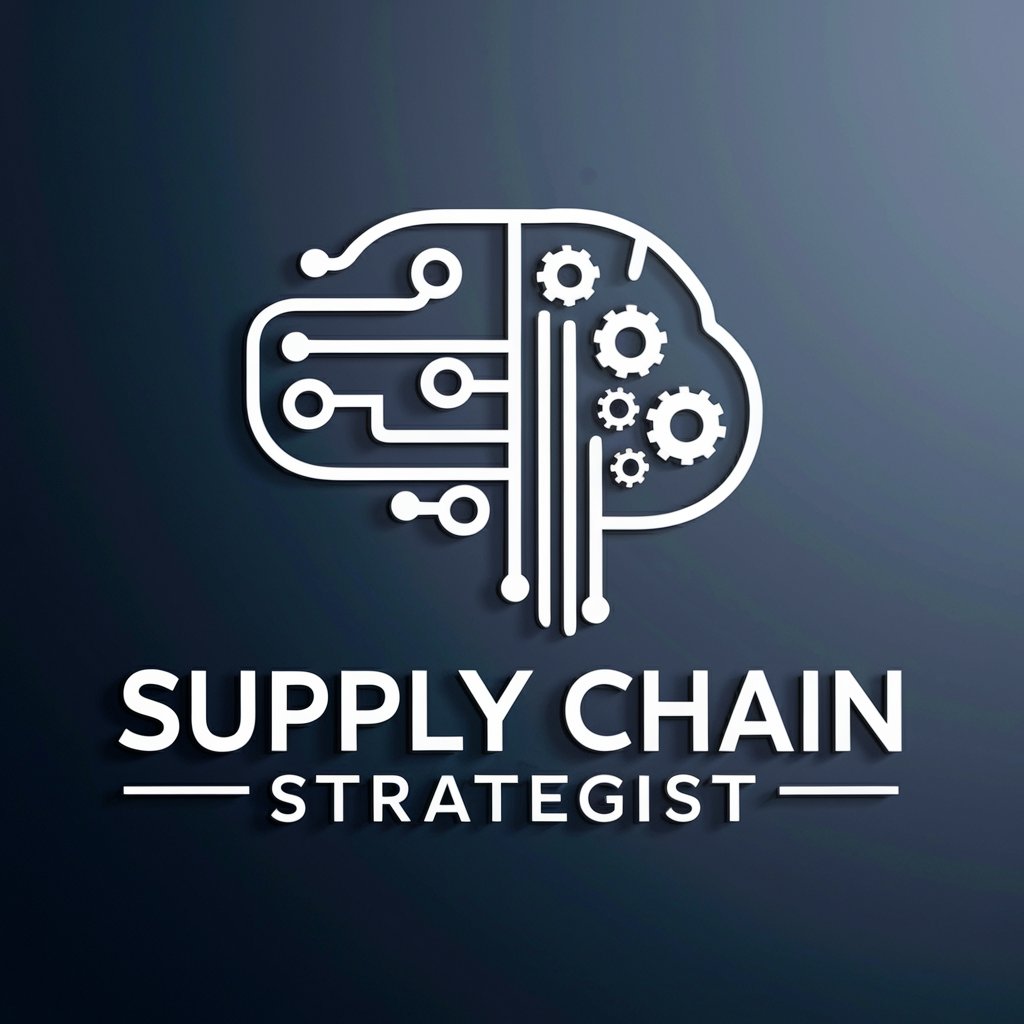
Supply Strategist
Empowering Global Trade with AI
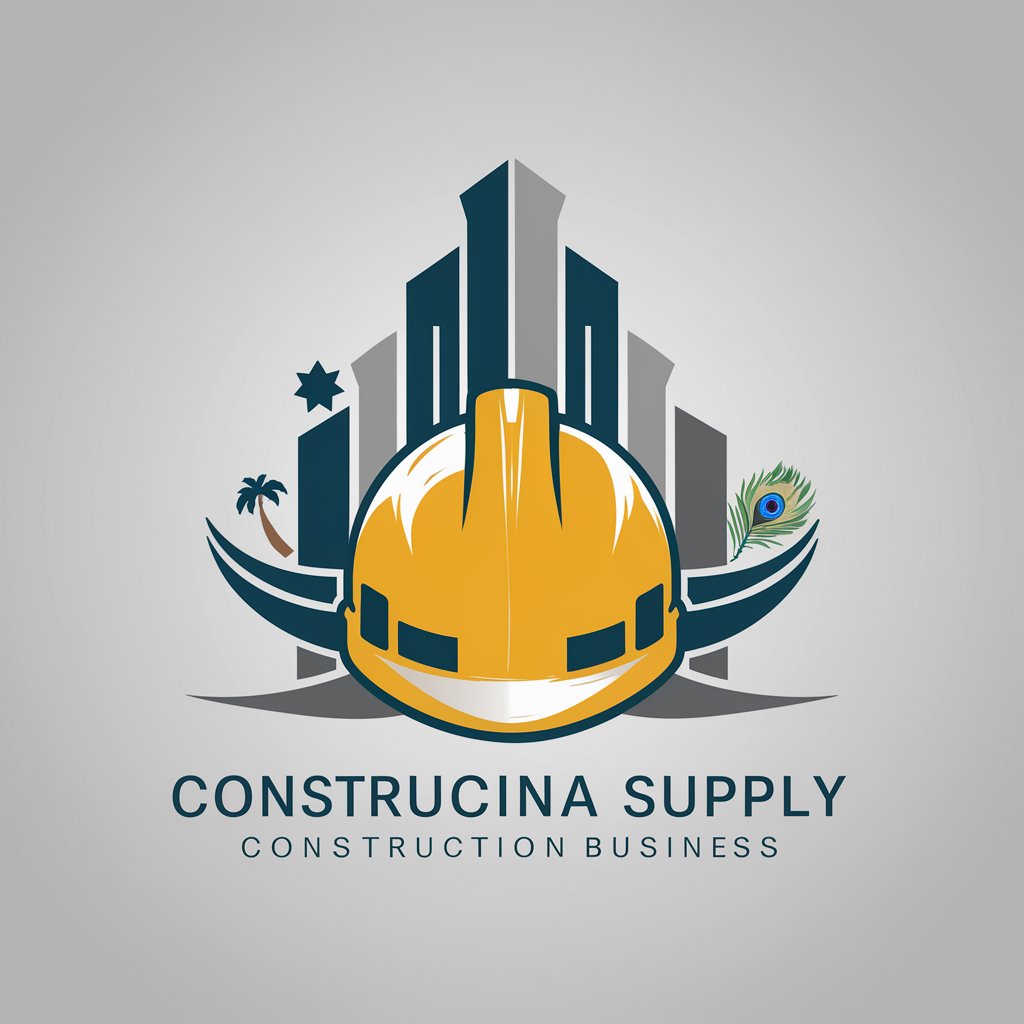
Finance Robot
Empowering Decisions with AI Analysis
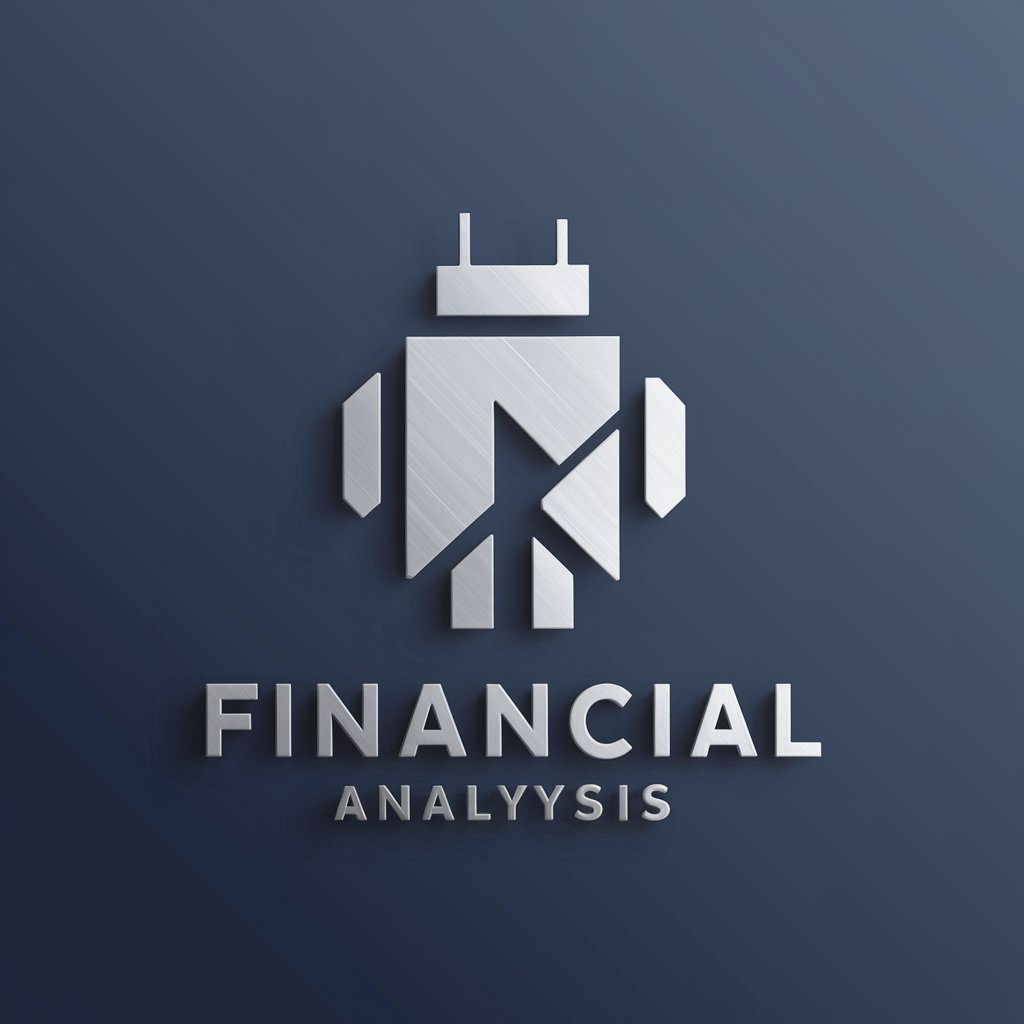
Strength Robot
AI-driven, personalized fitness at your fingertips

Lawyer Robot
Empowering Legal Processes with AI

Tech IA-Robot
Elevate Your Research with AI Power

Intelligent Robot
Elevate your AI projects with expert guidance.
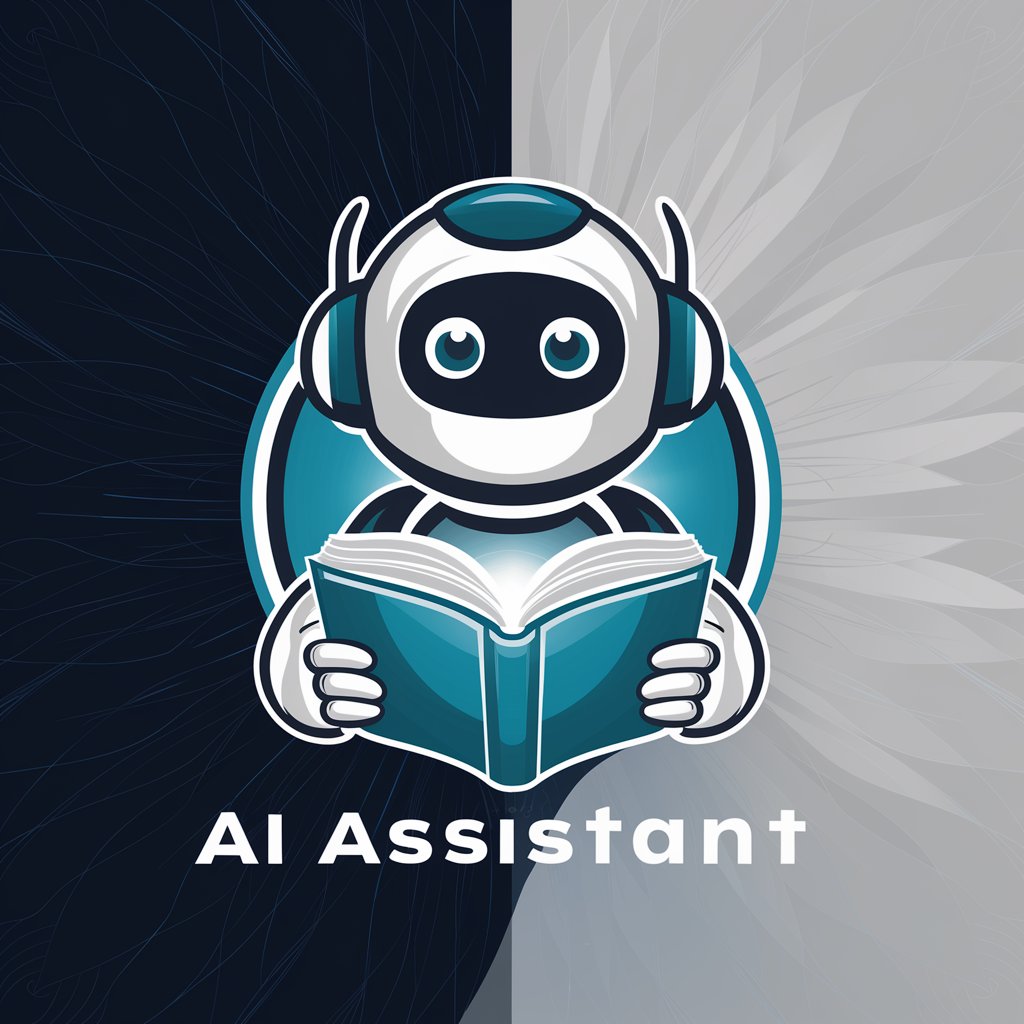
Professor Robot
Empowering robotics innovation with AI-driven guidance.

Detailed Q&A on Supply Chain Manager
What makes Supply Chain Manager unique in managing supply chain challenges?
Supply Chain Manager utilizes AI to provide data-driven insights and strategies for supply chain optimization. It integrates technology, sustainability, and risk management to offer solutions tailored to each unique challenge, making it an essential tool for improving operational efficiency.
How can Supply Chain Manager assist in risk mitigation?
It provides comprehensive analyses on potential supply chain vulnerabilities, recommends strategies for risk avoidance, and suggests contingency plans to ensure business continuity, thereby assisting organizations in proactive risk management.
Can Supply Chain Manager help in identifying the best outsourcing opportunities?
Yes, it evaluates market trends, cost factors, and quality requirements to recommend optimal outsourcing opportunities, ensuring that decisions are aligned with the company's strategic goals and operational efficiency.
How does Supply Chain Manager integrate sustainability into supply chain processes?
It advises on sustainable practices, such as eco-friendly materials sourcing, minimizing carbon footprint in logistics, and waste reduction techniques, aligning supply chain operations with environmental responsibility.
In what ways can Supply Chain Manager improve logistics and customer order fulfillment?
By analyzing logistics operations, inventory levels, and customer demand, it suggests optimization strategies for warehousing, transportation, and order processing to enhance delivery speed, accuracy, and customer satisfaction.
